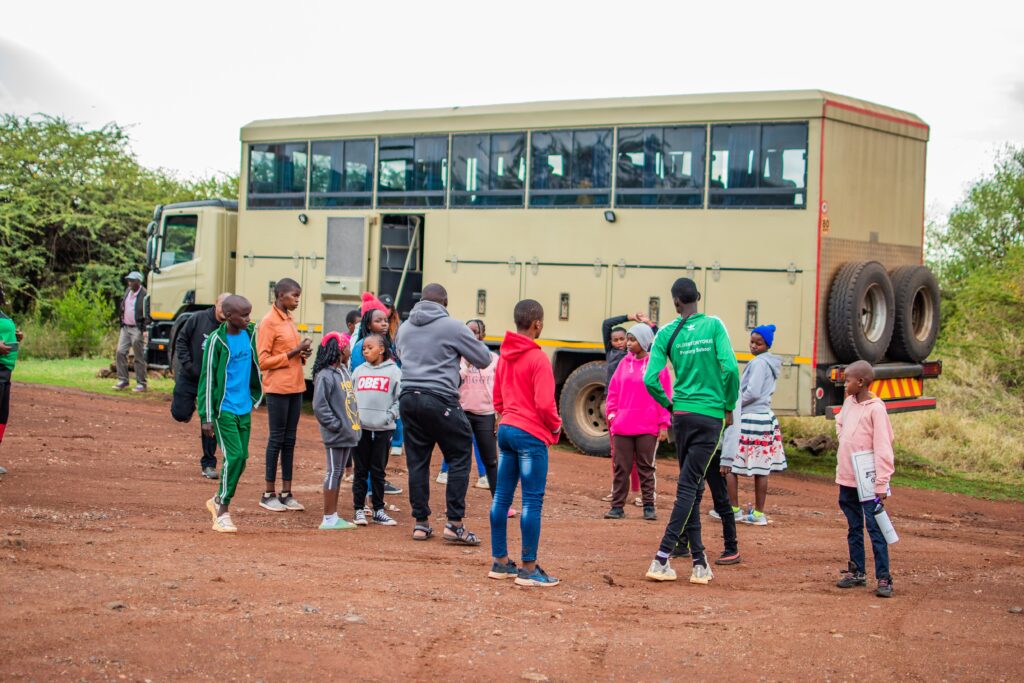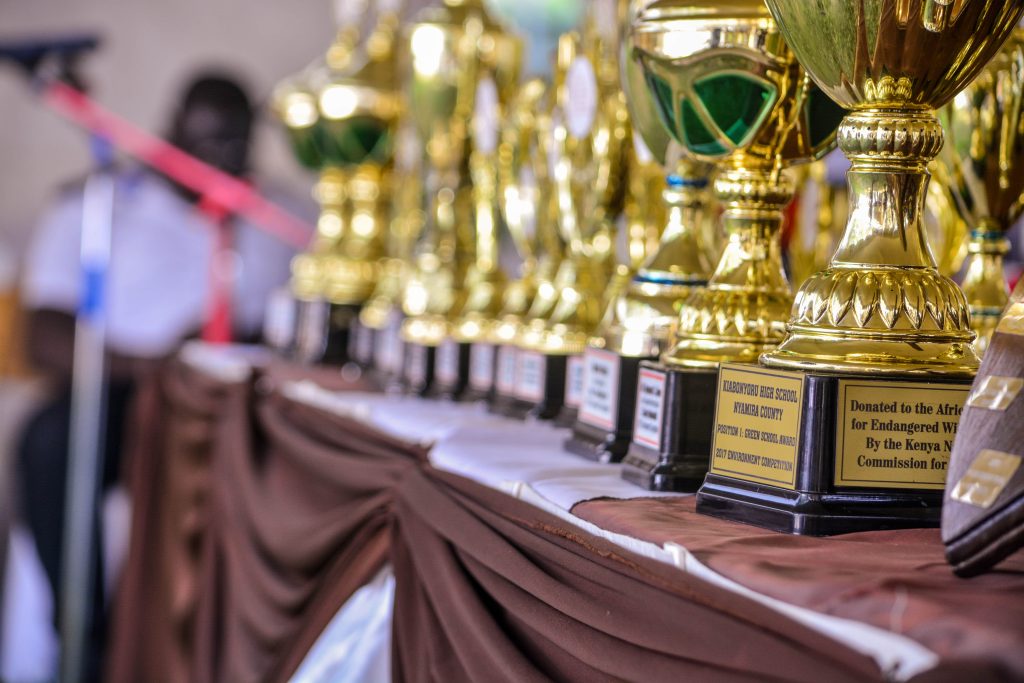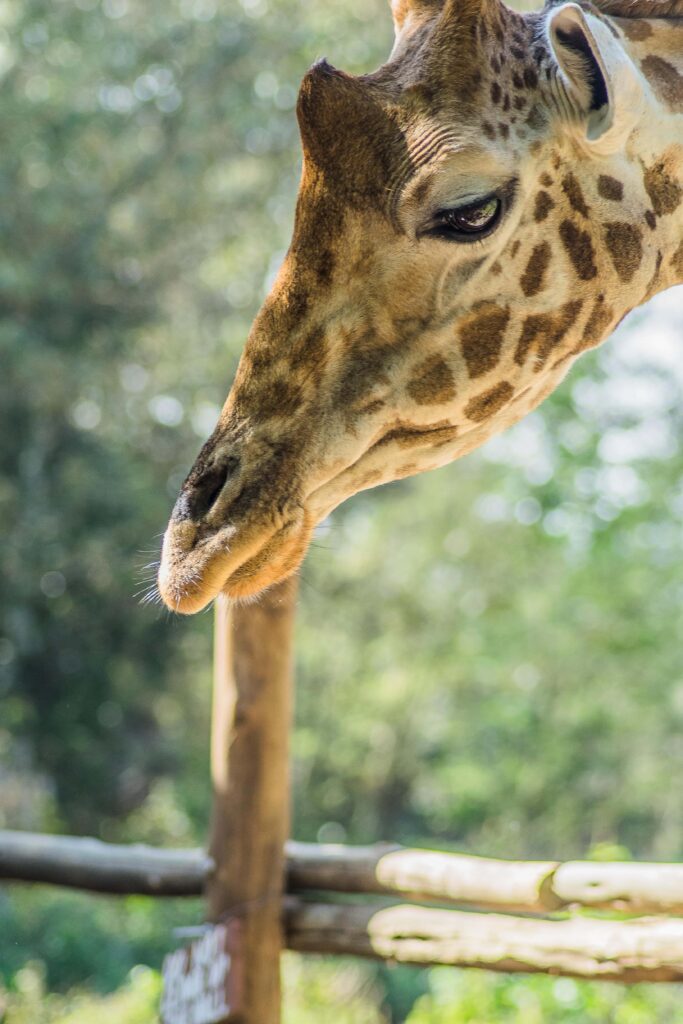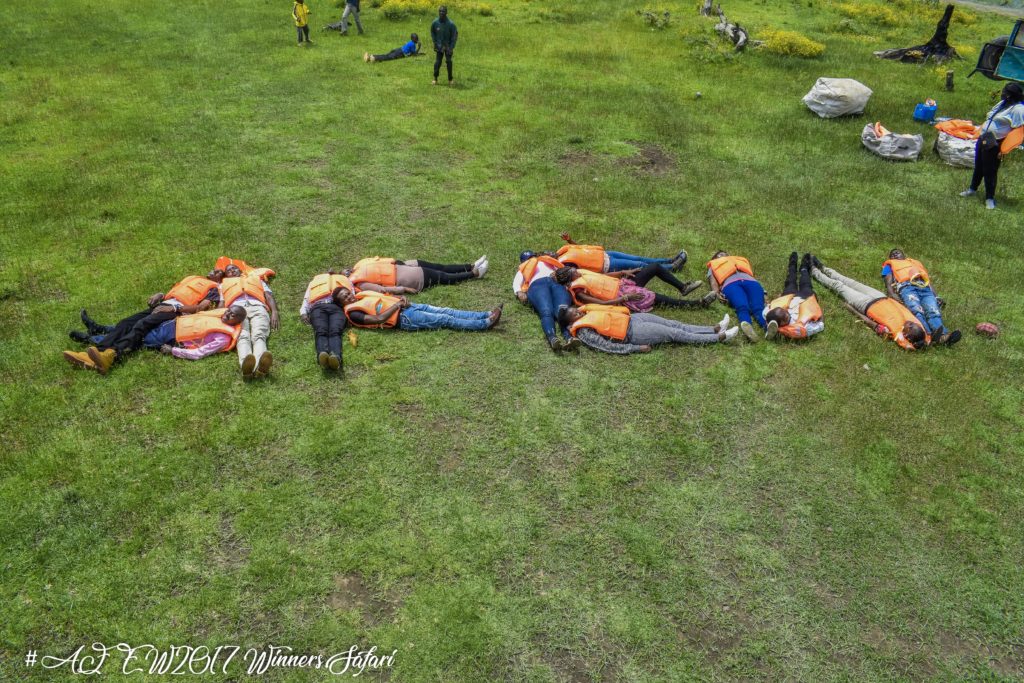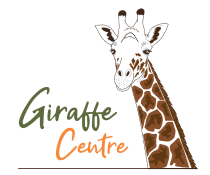For the 37th consecutive year, the Giraffe Centre proudly hosted the 2024 Annual Environmental Awareness Competition from January to March 2024. This initiative seeks to engage young minds in environmental conservation through various creative outlets, including essay writing, art, and group projects. This year, we were thrilled to receive over 5,000 entries from more than 150 schools nationwide. From these entries, we proudly crowned 250 students as winners during the World Environment Day celebrations held at our premises in Karen.
Among the prizes awarded, one highlight is a fully sponsored one-week safari across the country’s protected areas. The top 75 students from the competition had the incredible opportunity to visit, enjoy, and learn about wildlife in a truly immersive and entertaining way. The primary category recently embarked on an exciting safari to Samburu, Lewa, Ol Pejeta, Elsamere, and Maasai Mara. At each of these locations, we gained valuable insights into the historical significance of the areas, the cultures of the local tribes, and the initiatives they have undertaken to mitigate human-wildlife conflict. We also discovered how the existence of these protected areas benefits the surrounding communities.
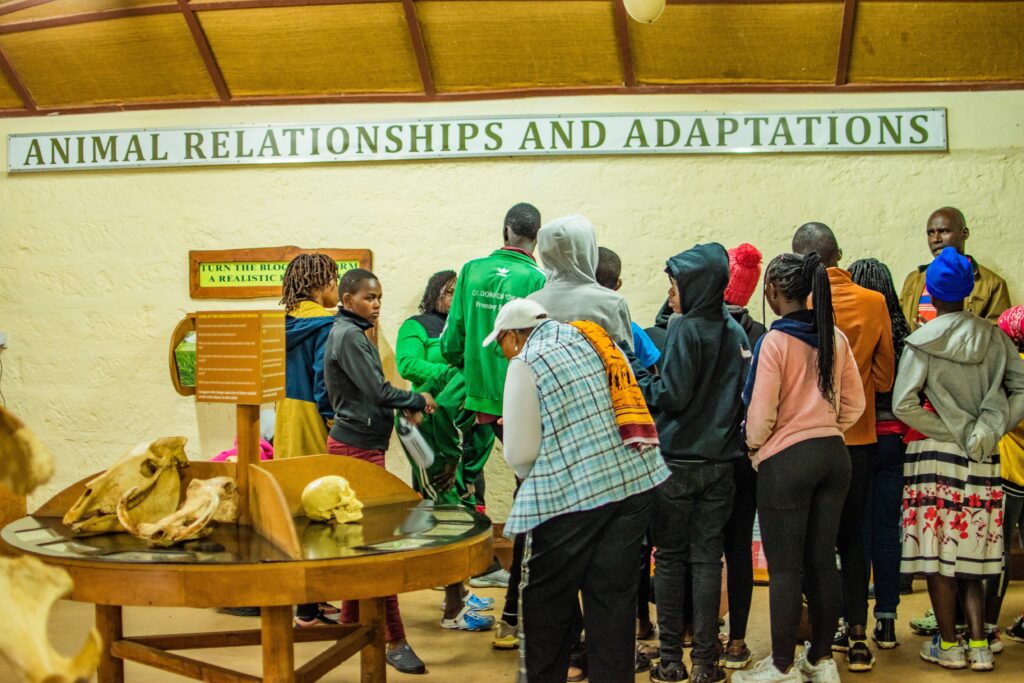
We are confident that by fostering a shift in mindset regarding environmental conservation among future generations, we will cultivate champions for the environment. By exposing students to these natural settings and allowing them to engage with wildlife and conservation advocates, we will inspire nature enthusiasts who will understand and commit to protecting our natural world.
This trip certainly ignited a passion for nature among this year’s winners in the primary school category. It’s a goal we aim to foster in all participants of our annual environmental awareness competition.
The one week safari was full of knowledge, adventure, fun and many firsts.
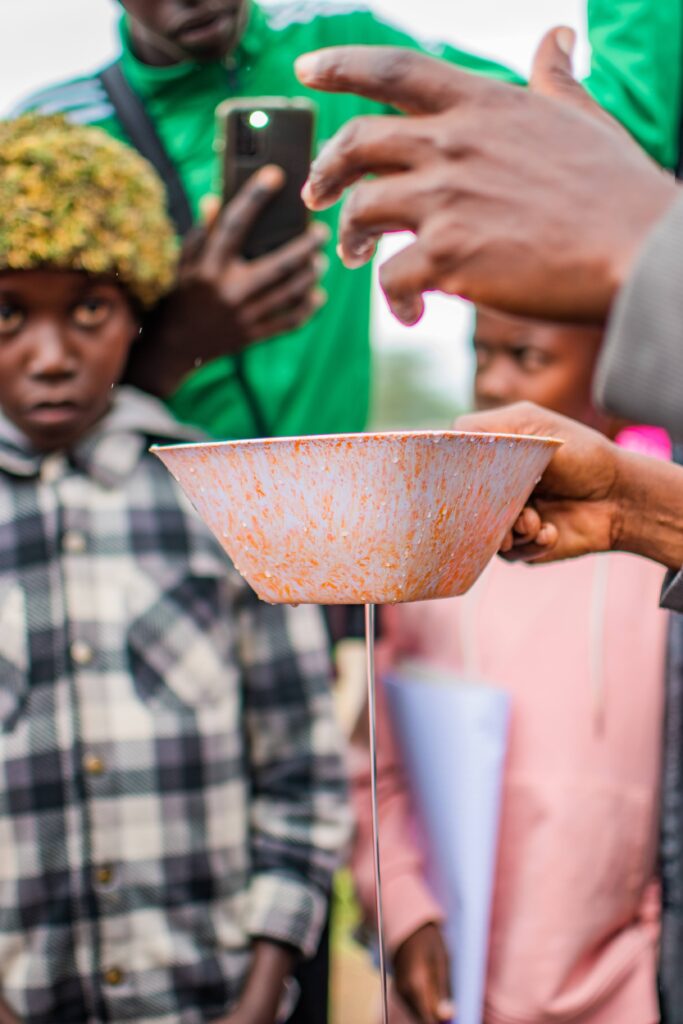
Knowledge
On the first day of our journey to Lewa Conservancy, we stopped at the equator crossing in Nanyuki. During this visit, we acquired valuable knowledge about the equator’s role as the central line in navigation and direction, as well as its impact on physical phenomena, such as the swirling of water as it drains. Additionally, the class on the magnetic field was incredibly enlightening, offering insights into why trees lean and how the wind blows. This was an essential lesson for Scouts enthusiasts.
That was just the beginning of our journey. Our visit to Lewa Conservancy was equally enlightening. We discovered how Lewa, traditionally viewed as a place for manhood and cattle grazing, has evolved into a leader in rhino conservation, environmental protection, and a champion for shifting mindsets within the communities of Nanyuki and Isiolo. This realization highlighted the incredible achievements that can be made when communities unite. Overall, the northern region of the equator has embraced community engagement in the realm of environmental conservation, yielding remarkable results.
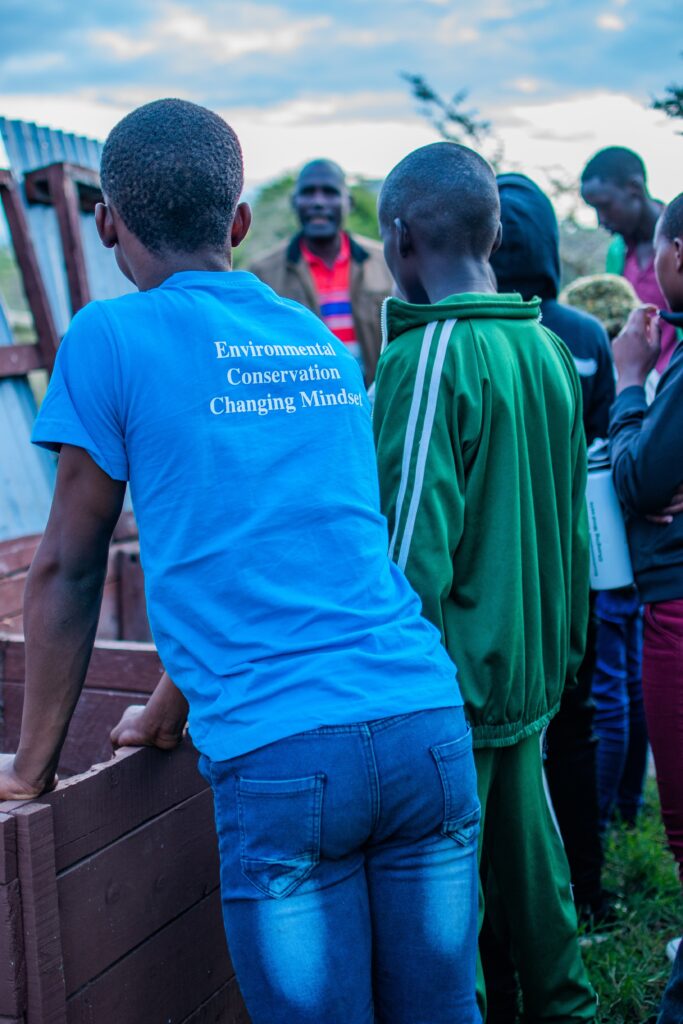
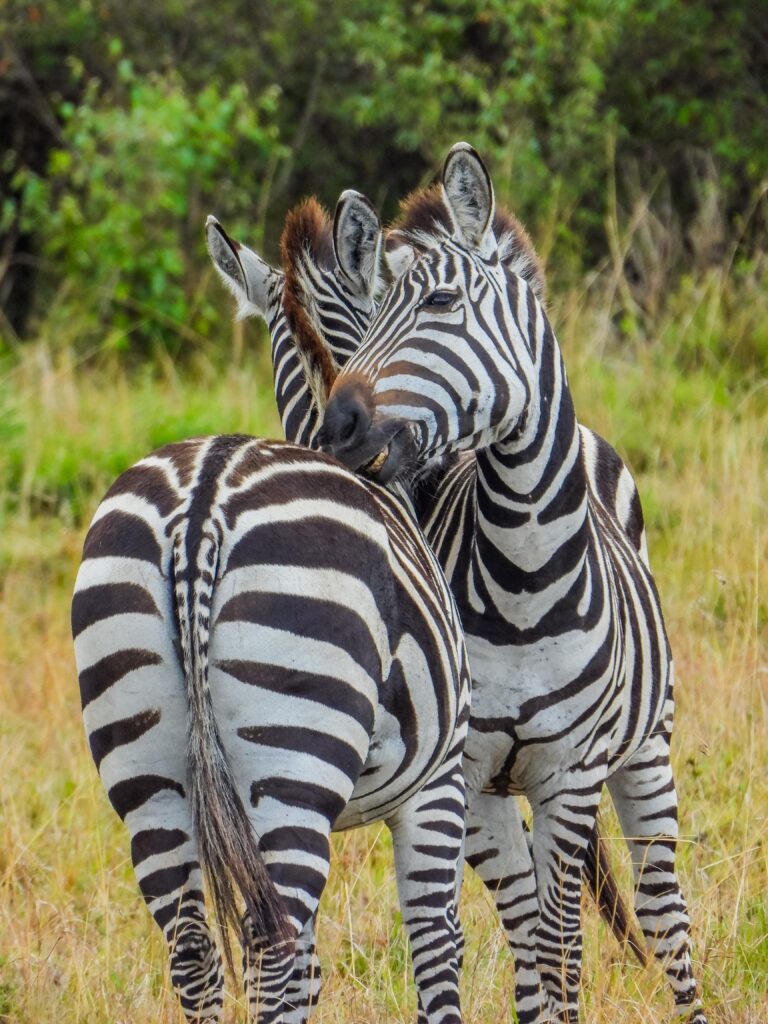
Mara: A Land of Adventure
Mara, a Maasai name meaning scattered bushes, is synonymous with adventure. Embarking on an overland journey across the savannah in search of wildlife was an exhilarating experience. By chance, we were fortunate enough to spot various animals and birds, learning fascinating facts about how they have adapted to life in the Mara. From the hippos in the Mara River and the waterbucks to the cheetah and spotted hyena, we encountered the majestic Black Rock Lion Pride.
The Maasai Mara truly embodies adventure and serves as an incredible place to understand the interdependence of wildlife.
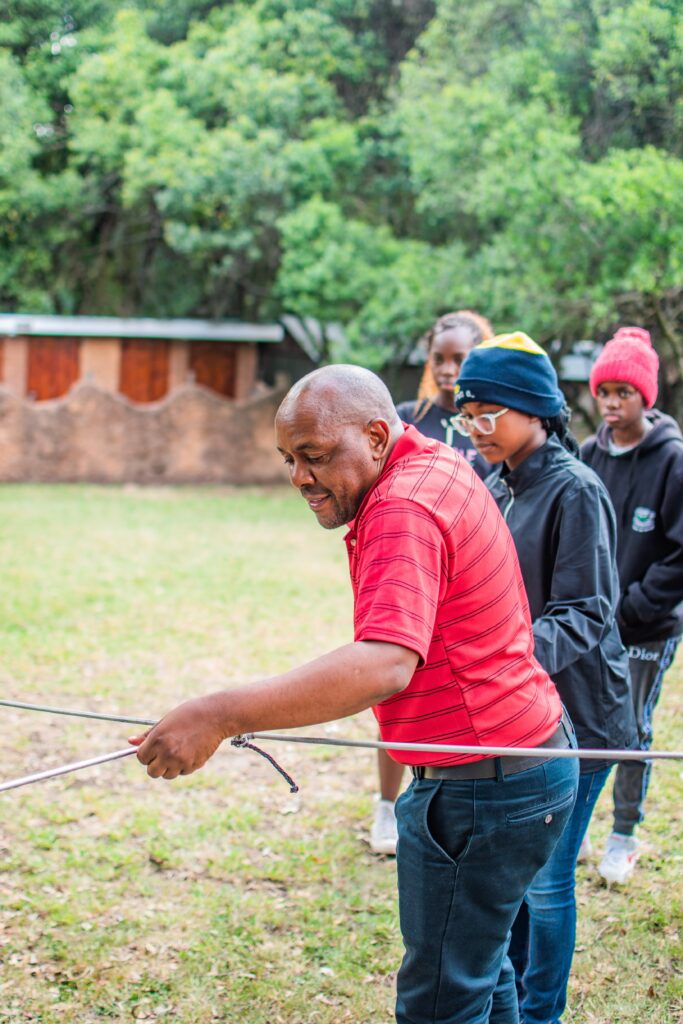
A Night Under the Stars: The Giraffe Centre’s Winners Safari
What truly sets The Giraffe Centre’s Winners Safari apart is the camping experience. Winners get to embrace life in a tent, immersing themselves in the wild. On this particular safari, we spent two nights under the stars, making our tent our cozy, temporary home.
It wasn’t just about sleeping in a tent; it was about the opportunity to learn and build our own shelter.
We got to plan and design our space, making it comfortable and personal. This hands-on experience added a unique layer to the adventure, allowing us to connect with nature on a deeper level.
Imagine your child experiencing the thrill of a safari adventure, exploring the wonders of Kenya’s wildlife and learning about the importance of conservation. This isn’t just a dream, it’s a reality for winners of the AFEW Kenya – Giraffe Centre Environmental Awareness Competition!
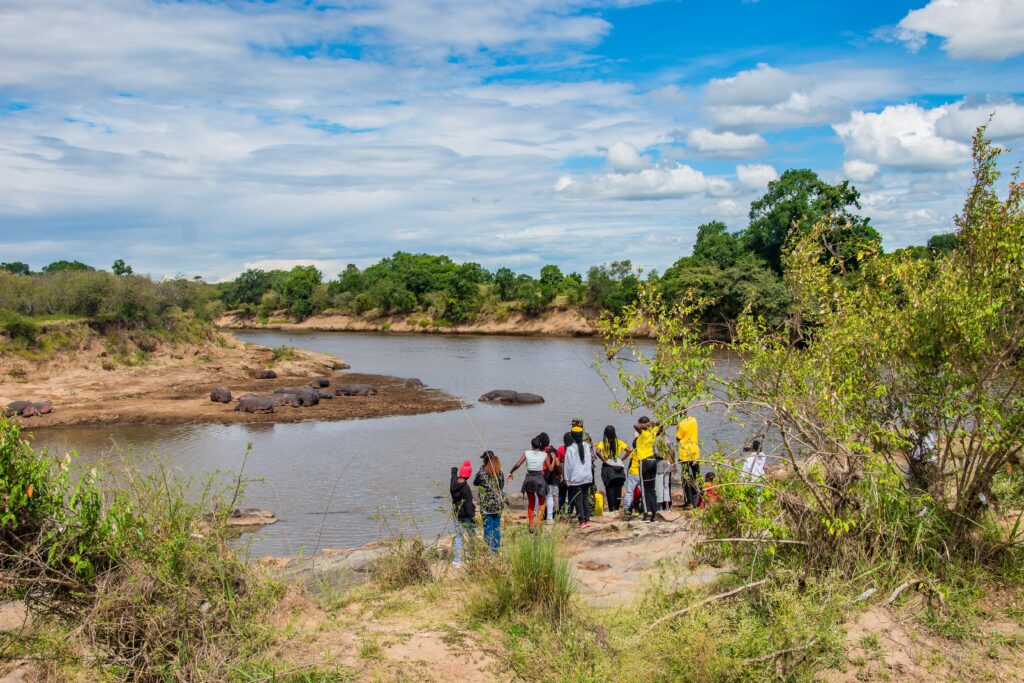
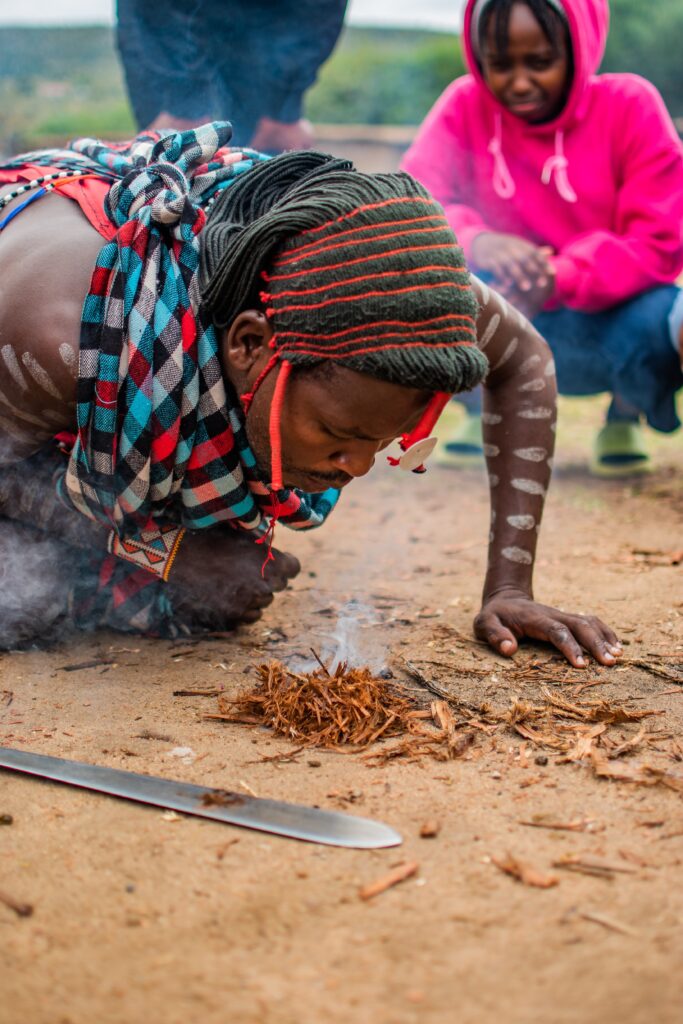
As one parent put it, “It was a safari that greatly enriched my child’s holiday.” This incredible opportunity could be yours!
So, Kenyan school students, get ready to unleash your creativity and knowledge. The 2025 competition could be your ticket to a fully sponsored safari adventure. Think about the amazing memories you’ll create, the incredible wildlife you’ll see, and the impact you’ll make on the environment. It’s an experience that will stay with you forever!
